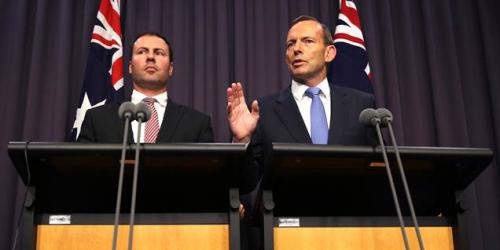Details of Federal red tape reductions reveal a fair start
THE Federal Government’s ‘big numbers’ of the Federal Budget have been under discussion in great detail, but the smaller details of what is being changed through the ‘red tape reduction’ efforts of the government are just as important operationally for many businesses.
Parliamentary Secretary to the Prime Minister, Josh Frydenberg, said back in March the government introduced legislation and tabled documents to repeal more than 10,000 “unnecessary and counter-productive pieces of legislation and regulations”.
He called the more than 50,000 pages set for repeal “unnecessary and costly legislation and regulations that are a dead weight on Australian businesses, community groups and households” expecting this reduction in red tape across the economy to save “more than $700 million a year, every year”.
“We are committed to cutting red tape costs by $1 billion a year to improve our nation’s competitiveness, help to create more jobs and lower household costs,” Mr Frydenberg said. 
“It will be easier for small businesses to do business with government. There will be a simplified process for tendering for contracts below $200,000, standardised terms and conditions and user-friendly online templates.
“We are making it easier for small businesses to be paid with the introduction of a new policy; credit and debit cards will become the Government’s preferred payment option for purchases under $20,000.”
Mr Frydenberg said the goal was for national businesses to operate under one workers’ compensation scheme right around the nation, rather than have to operate in up to eight.
Other specifics outlined were:
- Businesses will no longer be required to administer the former government’s paid parental leave scheme.
- Importers of agricultural chemicals and veterinary medicines, such as pet worm tablets, household weed killers or agricultural fertilisers, will no longer need to re-register well established products over and over, when the products haven’t changed.
- A reduction in paperwork for Australians seeking to do business in the Asia Pacific region with a streamlined accreditation process for the APEC Business Travel Card.
- A new one-stop-shop for offshore petroleum environmental approvals (NOPSEMA) will streamline approval of projects that include offshore petroleum and greenhouse gas activities in Commonwealth waters.
- Repealing the Carbon Tax and the Mining Tax should not only reduce cost of living pressures and help create jobs, but will also save nearly $100 million in compliance costs.
- The film industry will be able to make minor modifications to films (for example, turning 2D into 3D, then DVD and Blu-ray) without going through the classification process every time.
- Job service providers will no longer have to retain cabinets full of paper files and will now be able to keep records electronically.
- Slow moving machinery – like concrete mixers or ‘wacker packers’ (used to compact soil) will no longer need to be registered as ‘motor vehicles’ under the Personal Property Securities register.
- Universities will no longer be required to submit extensive (and duplicated) survey data on the size, use, management and maintenance of their lecture theatres, laboratories, offices and other facilities each year.
- Charities will no longer be subjected to as much duplication with their paperwork.
- Aged care providers and Disability Employment Service Providers will be spared many thousands of hours of paperwork.
Mr Frydenberg said, “Common sense changes will be made to Labor’s recent Future of Financial Advice laws to reduce the compliance costs for small businesses, financial advisers, and the broader financial services industry, whilst maintaining the quality of advice for consumers.”
That particular pledge has recently come under fire and may yet be modified on its course through the Parliament.
“Cutting red tape is at the heart of this Government’s mission: to build a strong and prosperous economy for a safe and secure Australia,” Mr Frydenberg said.
ends
POSTED MAY 27, 2014

 How to resolve AdBlock issue?
How to resolve AdBlock issue?